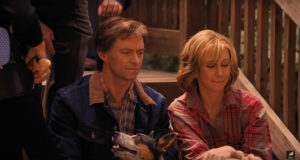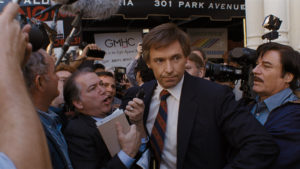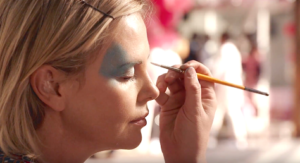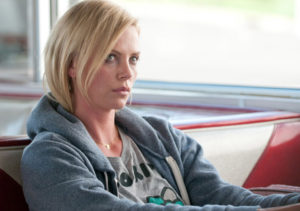The Front Runner (2018)
Hugh Jackman, Vera Farmiga, J.K. Simmons, Alfred Molina, Sara Paxton, Mamoudou Athie, Kevin Pollack. Written by Matt Bai, Jason Reitman, and Jay Carson. Directed by Jason Reitman.
 The Front Runner is Jason Reitman’s film about the candidacy of Gary Hart for the 1988 presidential election. There are a lot of approaches a filmmaker could take for a picture like this. It’s the rise and fall of an intellectual, good-looking senator. It’s the victimization of a young model aspiring to a career in government. It’s the turning point in our national discourse where a politician’s personal life becomes relevant for American voters. Or it’s the moment when American journalists stopped turning a blind eye to politicians’ dalliances and actively reported on them.
The Front Runner is Jason Reitman’s film about the candidacy of Gary Hart for the 1988 presidential election. There are a lot of approaches a filmmaker could take for a picture like this. It’s the rise and fall of an intellectual, good-looking senator. It’s the victimization of a young model aspiring to a career in government. It’s the turning point in our national discourse where a politician’s personal life becomes relevant for American voters. Or it’s the moment when American journalists stopped turning a blind eye to politicians’ dalliances and actively reported on them.
 Reitman hits that last one, with dramatizations of conversations between publishers, editors, and reporters at the Washington Post and Miami Herald. The decision to pursue a story about Hart’s relationship with his alleged mistress Donna Rice is nothing shy of an identity crisis for everyone involved and for the institution of journalism.
Reitman hits that last one, with dramatizations of conversations between publishers, editors, and reporters at the Washington Post and Miami Herald. The decision to pursue a story about Hart’s relationship with his alleged mistress Donna Rice is nothing shy of an identity crisis for everyone involved and for the institution of journalism.
 I was confused and annoyed by the director’s decisions in the first half of the film. Some reviewers have called the overlapping dialogue, quick edits, and enormous number of characters Altmanesque, but I’ve never been this confused by an Altman movie. As the film progresses, a few key characters emerge (notably A.J. Parker, a fictional Washington Post reporter played by Mamadou Athie), and the movie becomes a lot less chaotic. I want to see this again to decide if I simply got used to the style or if Reitman deliberately creates an experience that becomes less confusing as the story progresses.
I was confused and annoyed by the director’s decisions in the first half of the film. Some reviewers have called the overlapping dialogue, quick edits, and enormous number of characters Altmanesque, but I’ve never been this confused by an Altman movie. As the film progresses, a few key characters emerge (notably A.J. Parker, a fictional Washington Post reporter played by Mamadou Athie), and the movie becomes a lot less chaotic. I want to see this again to decide if I simply got used to the style or if Reitman deliberately creates an experience that becomes less confusing as the story progresses.
 Hugh Jackman is excellent as Hart, and Vera Farmiga, as always, is terrific as well, playing Hart’s wife Lee. I’d never heard of Molly Ephraim, who plays a fictional Hart campaign scheduler and kind of Donna Rice’s handler when things get hot, but she’s an interesting actress in kind of a challenging role.
Hugh Jackman is excellent as Hart, and Vera Farmiga, as always, is terrific as well, playing Hart’s wife Lee. I’d never heard of Molly Ephraim, who plays a fictional Hart campaign scheduler and kind of Donna Rice’s handler when things get hot, but she’s an interesting actress in kind of a challenging role.
Although the film has its problems, when it ended I felt I’d come through an amusement park ride, baffling at first but strong and clear at the end, although Reitman seems deliberately to avoid making a statement. Instead, he presents the moment as important and lets the viewer make the judgment. The film suffers some because of it.
I have a strong bias in favor of Reitman, who is probably one of my two favorite working directors, but I didn’t know he directed this until the end credits rolled. I clapped quietly when it was over, then felt kind of thrilled to see that it was Reitman I applauded.
7/10
71/100

 Sometimes a movie must be reviewed for how it addresses big, important issues, and the more the reviewer knows about these issues, the more credible the review.
Sometimes a movie must be reviewed for how it addresses big, important issues, and the more the reviewer knows about these issues, the more credible the review. So this is how a middle-aged, never-married-never-had-kids man, knowing full well he will never relate to a huge chunk of the art’s purpose, receives Tully, a movie about a middle-aged woman dealing with post-childbirth life as a mother and wife.
So this is how a middle-aged, never-married-never-had-kids man, knowing full well he will never relate to a huge chunk of the art’s purpose, receives Tully, a movie about a middle-aged woman dealing with post-childbirth life as a mother and wife. Tully’s job is to take care of Marlo’s newborn at night, waking Marlo for feedings but otherwise leaving her to sleep while Tully takes care of changing the baby, cleaning up after the baby, and rocking the baby to sleep. The extra rest does wonders for Marlo, who suddenly has time and energy to do many of the good-mommy things she feels she’s neglected lately, like preparing family meals that don’t come out of the freezer.
Tully’s job is to take care of Marlo’s newborn at night, waking Marlo for feedings but otherwise leaving her to sleep while Tully takes care of changing the baby, cleaning up after the baby, and rocking the baby to sleep. The extra rest does wonders for Marlo, who suddenly has time and energy to do many of the good-mommy things she feels she’s neglected lately, like preparing family meals that don’t come out of the freezer. Marlo needs rest and time, but she also needs help, and she needs to be healthy in mind and body. Tully makes it all possible, and Marlo’s reemergence is lovely to see.
Marlo needs rest and time, but she also needs help, and she needs to be healthy in mind and body. Tully makes it all possible, and Marlo’s reemergence is lovely to see.